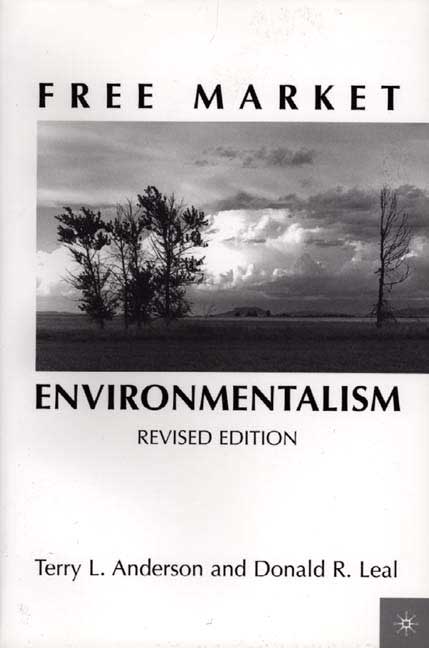
Revising Free Market Environmentalism in 2001 illuminated the progress that had been made because incentives really do matter. In addition to land markets producing recreational amenities and water markets improving water-use efficiency, “enviropreneurs” were contracting for wildlife habitat and instream flows. They were also reducing effluent by cleaning up dirty water and selling the clean results. As the marketing slogan for a septic tank company puts it, “Your effluence is our affluence.”
These FME success stories, with autonomous actors buying and selling private property rights, were not enough for skeptics. Seeing market failure behind every bush (pun intended), skeptics believe that Adam Smith’s invisible hand needs a helping hand from government.
The skeptics call for “market-like environmentalism,” which I’ll dub MLE. Compared to markets where resource owners decide how, what, when, and how much to produce, MLE starts with an outcome and proposes incentives—sometimes carrots and sometimes sticks—to get there. With MLE, a carbon tax is a market-based incentive because it raises the price of fossil fuel and encourages reduced consumption. Similarly, “cap-and-trade” approaches such as individual ï¬ shing quotas (IFQs) and tradable pollution permits are market-based because they work through trading.
While it is true that cap-and-trade approaches can achieve some regulatory goals better than traditional regulations (as Leal’s work on IFQs shows), they still have many of the problems inherent in command-and-control. Proposed global warming policies provide an example. A carbon tax and tradable carbon credits presuppose that we know the appropriate amount of carbon to be emitted and whether achieving that level is worth the cost. Neither is the case. Unilateral reductions of carbon emissions by the United States will not reduce global temperatures. Indeed, if all countries met Kyoto targets, the commonly predicted 2o C temperature increase over the next century would be reduced by only 0.1o C. Combine this with the estimate from Britain’s recent “Stern Report” that meeting Kyoto targets would cost between 5 and 20 percent of world economic output forever, and you have goals that make no sense.
In contrast, FME relies on markets to signal benefits and costs of global warming and lets individuals respond to those signals. Higher insurance rates and cancelled policies for Florida homeowners send a price signal to coastal dwellers. Coastal land values will decrease if sea levels rise, and interior land values will increase if moisture and warmth make them more productive for agriculture. Such market signals will provide better information and accounting for benefits and costs than will MLE taxes and regulations.
FME has come a long way in showing how markets can provide environmental goods, but regulations aimed at global warming suggest that there is much farther to go. Dressing centralized regulations in MLE clothing doesn’t make them FME. Secure private property rights that hold people accountable and markets that communicate human values and opportunity costs are the core of FME, and they are as applicable to global warming as they are to land and water conservation.
On to the third edition!
In his “On Target” column, PERC’s executive director Terry L. Anderson confronts issues surrounding free market environmentalism. Anderson can be reached at perc@perc.org.



